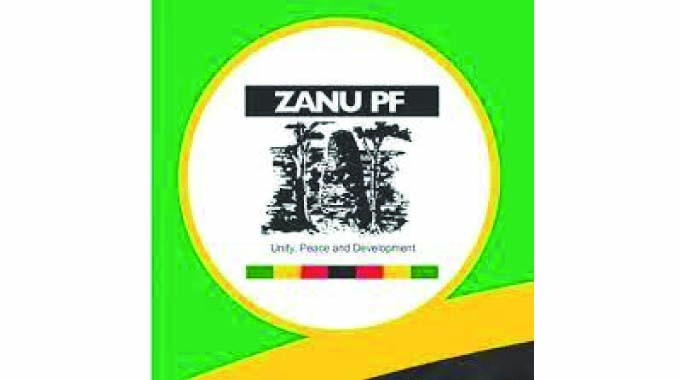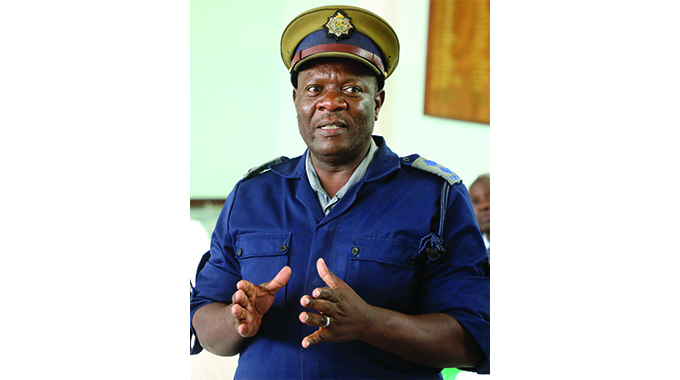Zimbabwe puts foot down on SADC observer mission

Fungi Kwaramba, Zimpapers Elections Desk
BY covertly handing over the SADC Elections Observers Mission (SEOM) to CCC, as confirmed by the party’s fugitive spokesperson Mr Promise Mkwananzi, the head of the mission, Dr Nevers Mumba, has flouted the SADC guidelines related to elections and ethics of observers that require teams to show no partiality, Government has said.
This comes as Mr Mkwananzi last week confirmed in an interview with a local weekly that his party had taken delivery of the SADC Elections report, bringing once more to the fore the role that Dr Mumba continues to play in the high stakes game to reverse the will of Zimbabweans by Europe and the United States.

Nelson Chamisa
Zimbabwe went to elections last month, but alarm bells rung loud on Dr Mumba as his conduct bordered on partiality and unconcealed bias towards CCC, a party he cooperatively hobnobbed with, even accompanying the party’s leader Mr Nelson Chamisa to cast his vote.
Deputy Chief Secretary to the President and Cabinet (Communications) Mr George Charamba said if what Mkwananzi is saying is the truth then it’s an unprecedented breach of SADC principles guidelines on elections.
“If what CCC has indicated is true, namely that the final report has been shared with a political player in Zimbabwe, ahead of presentation to the chairman of the organ who is Zambian President and ahead of its adoption by the Presidents of the Troika (namely Zambia, Namibia and Tanzania) those are supposed to sign it, and also ahead of a signed copy of the report being given to the Zimbabwean Government, if this is what has happened it is a breach of SADC code of conduct in relation to election observation. If there is evidence we will take it up with SADC,” he said.
Beyond the brazen and scarcely concealed bias towards the opposition, Zambia was following the country’s election closely, sources said, to the extent of getting regular updates from CCC, before, during and after elections.
Significantly, diplomatic sources revealed that officials from the Zambian Government, apart from dispatching Dr Mumba on a mission to “deliver a free and fair election for Zimbabwe” are still making frantic efforts to convince the region to convene an Extraordinary Summit on Zimbabwe.
Further, the sources said, the Zambian Government in direct contravention of the impartiality demanded of it phoned some heads of state in the region, to wrongly and prematurely announce that Mr Chamisa had won the elections by 51 percent of the vote with President Mnangagwa managing 47 percent.
However, in the August 23 presidential elections, President Mnangagwa actually garnered 52.6 percent of the vote with Mr Chamisa getting 44 percent.
But that diplomatic offensive to other regional leaders from the Zambian side reportedly triggered panic in Tanzania which then sought to dispatch its former President Jakaya Kikwete as an elderly stateman to help calm an anticipated volatile situation in Zimbabwe.
Before Mr Kikwete flew to Zimbabwe, several SADC governments that had been contacted by Zambia then phoned the Zimbabwean Government seeking clarification on the poll outcome and they were told the truth.
“Tanzania thought there would be chaos in Zimbabwe, that is why they wanted to send former President Kikwete, but after they had been told the truth, they then decided to abort that mission,” the source said.
The inclination towards partiality runs much deeper, extending even into the corridors of the SADC secretariat, to the SEOM especially the chairman Mumba, and to the Zambian Government, ultimately the plot was to sheen off legitimacy of the ruling party Zanu PF and President Mnangagwa.
Apart from kowtowing to the dictates of the West by Dr Mumba, as SADC produced a report that was almost similar in word to that of the European Union and the US Government sponsored Carter Centre Personal, personal hatred towards the ruling party by some people in the SADC secretariat also influenced the report that is now expected to be rejected by the region at its next meeting in 2023.
According to the deep throat sources in Europe, one of the SADC secretariat members was a Zimbabwean, Mr Elijah Munyuki, who was seconded to the regional body secretariat by the EU.
“He is a CCC member who is bitter against the Zanu PF Government because of issues related to his late father, who died soon after he had been appointed to a high post in Government. This is the man who co-authored the preliminary and final report, this explains why there was close liaison between Nevers Mumba and the EU delegation,” said the source.

ZANU PF
According to the SADC Principles and Guidelines Governing Democratic Elections, the Head of Mission (HoM) issues the Preliminary Statement at a press conference within 48 hours of closing the polls. Whenever possible, this ceremony is shared with other international observer missions present in the country.
The preliminary statement re-introduces the SEOM to the public, and it provides details of its mandate, methodology and activities since its launch. It also provides the preliminary findings from its consultations with electoral stakeholders. Based on the findings and observations, the statement presents the recommendations.
The preliminary nature of this statement derives from the fact that when it is issued the electoral process is still on-going. It often comes when the tabulation has not been concluded and when the results are not yet announced.
In the case of electoral processes with two rounds of elections, particularly in the case of presidential elections, the preliminary statement is issued only after the second round. At the end of the first round, the SEOM issues a pronouncement, which presents findings on the first round, but does not include recommendations or conclusions.
The drafting team, guided by the HOM, the Organ Troika and SADC Advisory Council (SEAC), drafts the preliminary statement with inputs from the Long-Term Observers (LTO) core team.
The Mission leadership delivers the final report to the member state and electoral authorities 30 days after the completion of the process, including complaints and appeals.
The SEOM final report presents the mission’s overall assessment of the election. It is normally issued within one month of the completion of the electoral process. The report plays a highly important political and technical function in providing a comprehensive assessment of the election process.
The final report details the SEOM’s overall findings and conclusions on all aspects of the electoral process. A key feature of the final report is the detailed and constructive recommendations it offers to improve the framework and conduct of future elections and strengthen democratic institutions in Member States.
The final report is usually prepared during the closing period of the mission, and where possible, a first draft should be prepared before the departure of the leadership team. The final version is produced in the Mission’s working language and translated into the official languages of the SADC to make it as broadly available as possible. The final SEOM report is adopted by the SEAC and the Organ Troika before its submission to the Member State and the Election Management Board (EMB) of that Member State.
The Member State is given an opportunity to study the report and its recommendations. It will either accept the recommendations if they are progressive and consistent with the Constitution and Laws of the country or reject them. Zimbabwe usually studies these recommendations through a Ministerial Committee. Zimbabwe invited a number of observer missions and so will it expect reports from them.
Thereafter the SEOM report will be submitted to the ordinary session of the Ministerial Committee of the Organ where Ministers will debate on the report and make recommendations to the Summit. This Ministerial of the Organ is usually held in June/July.
After the completion of a SEOM, and in accordance with Section 7.3 of the Revised SADC Principles and Guidelines Governing Democratic Elections (2021) the SEAC at the invitation of the Member State concerned and in full agreement can undertake post-election reviews and follow up missions to encourage the implementation of recommendations issued by the SEOM








Comments